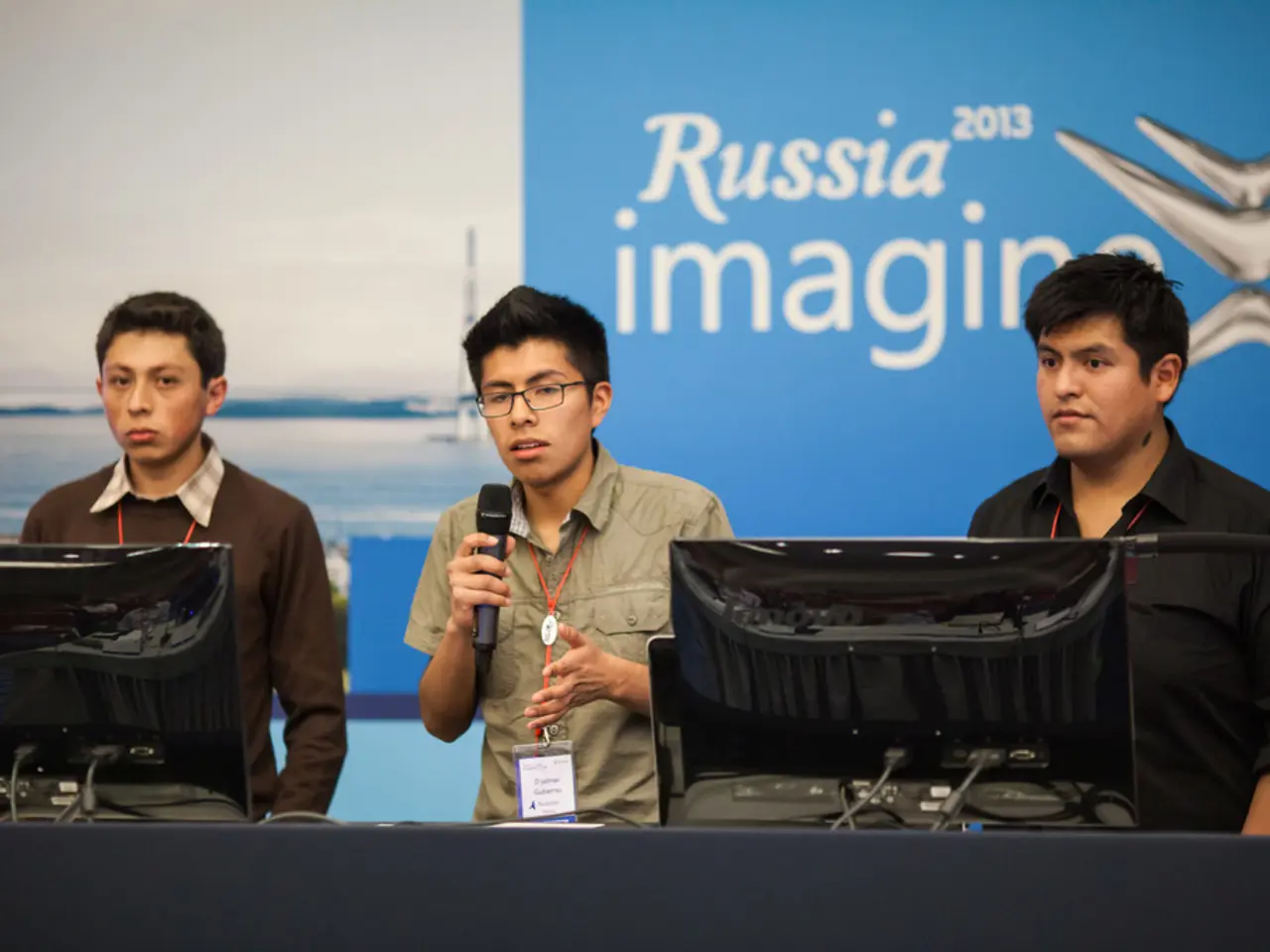Trump tipped off Ukraine about his security assurances
In a significant development, President Trump has outlined a new security framework for Ukraine that explicitly excludes NATO membership but aims to provide an Article 5-type security guarantee [1]. This commitment would not formally admit Ukraine into NATO, but would obligate the U.S. to defend Ukraine in the event of an attack.
The proposal, which was discussed in an online conversation with the leaders of Ukraine and European countries on August 13 [2], emphasizes that the U.S. would not commit ground troops but could offer air support. The primary defensive burden on the ground would be shouldered by European nations.
Trump's approach is a separate framework, not under NATO’s institutional umbrella, with security guarantees designed by a U.S.-led group but outside NATO’s formal structure [2]. This is in contrast to NATO’s role, which provides a formal collective defense guarantee (Article 5) exclusively for its own members, obligating all members to defend any member under attack.
Key differences between Trump’s conditions and NATO’s role include:
- Trump’s conditions:
- No NATO membership for Ukraine
- Security guarantee modeled on Article 5 but outside NATO
- No U.S. ground troops; possible air support from the U.S.
- European allies expected to provide the bulk of ground defenses
- Potential inclusion of large arms sales ($90 billion) as part of guarantees
- NATO’s role:
- Formal collective defense applies only to NATO members
- Obligates all members to defend any member under attack
- Institutional command and collective military capability sharing
The coalition, an alliance of more than 30 countries that consider themselves potential participants in a peacekeeping mission in Ukraine, has expressed support for these security guarantees, emphasizing the need for guarantees to protect Ukraine's sovereignty and territorial integrity [3].
Russia, however, has expressed concerns, with President Putin stating that Ukraine can receive security guarantees only if Russia’s security is ensured in the process [4]. Russia opposes Ukraine's accession to NATO, but does not object to Ukraine's accession to the EU [5].
This new security framework, if implemented, could mark a significant shift in the geopolitical landscape of Eastern Europe.
[1] CNN, "Trump supports providing Ukraine with security guarantees, including with U.S. involvement," August 13, 2021. [2] The Washington Post, "Trump proposes security guarantees for Ukraine that exclude NATO membership," August 14, 2021. [3] Reuters, "Coalition for the Willing supports security guarantees for Ukraine," August 14, 2021. [4] RBC, "Putin: Ukraine can receive security guarantees only if Russia’s security is ensured," August 14, 2021. [5] Associated Press, "Russia opposes Ukraine's accession to NATO, but does not object to Ukraine's accession to the EU," August 14, 2021.
- The newly proposed security framework for Ukraine, outlined by President Trump, steers clear of NATO membership but aims to provide an Article 5-esque security guarantee, placing a focus on politics and war-and-conflicts in Eastern Europe.
- The coalition of more than 30 countries, supporting these security guarantees for Ukraine, emphasizes the importance of general news, such as the need to protect Ukraine's sovereignty and territorial integrity, in shaping future relationships and alliances in the region.







